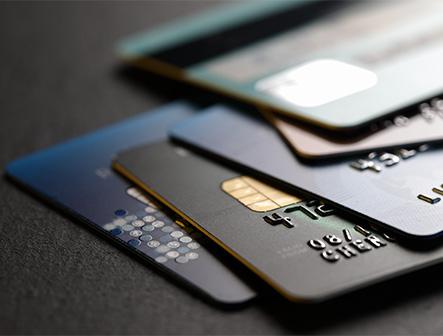

Credit cards can offer numerous benefits to consumers, including a convenient way to pay for purchases, the ability to build a credit history, and the potential for rewards. But to make the most of your credit cards, it helps to be an informed consumer.
This guide will help you shop for and use credit cards.
Each credit card offers different terms and benefits, so it is important to shop around to find the best one for you. Federal law requires creditors to disclose important rate and fee information to you before you apply for a credit card, which makes it easier for you to compare cards. Consider these things when shopping:
Again, this information must be disclosed to you before you apply for a credit card.
Opening a credit card means entering into a contract with the credit card company, so you want to make sure you understand the terms you are agreeing to and choose a card that has the best terms and rewards for you.
The terms and rewards also will be outlined in the Cardmember Agreement, which you will get when you get your card in the mail. (More information about credit card programs is included in this March 2019 FDIC Consumer News article). If you cannot find the agreement, contact your credit card company for a copy.
Opening a credit card and making on-time monthly payments is a good way to build positive credit history. (Learn more about credit reports and credit scores in the June 2019 FDIC Consumer News article.) In addition, if you do not pay your account on time or you go over your designated credit limit, the lender may charge you a fee.
The credit card company may take action on your account based on the overall credit history on which the credit score is based. This may include lowering your credit limit, closing your account or suspending your charging privileges based on your credit score even if you have paid your account with them as agreed. If you have questions regarding what is happening with your account, contact your financial institution.
Federal laws provide important protections for credit card users. These include:
If you use a credit card, you may have experienced some type of billing error, such as an unauthorized charge, a charge listed on your monthly account statement with the wrong date or amount, charges for goods that weren’t delivered as agreed, or failure to post payments or other credits. Federal law provides a means for correcting these types of account errors as long as the financial institution involved is notified in a timely manner.
The Truth in Lending Act (TILA) provides a process for disputing billing errors for open-end credit, such as credit cards. In order to take advantage of these protections, you must notify the lender of any billing errors by:
Once you properly notify the lender about an error on your statement, it must acknowledge that it received this notification within 30 days, unless the problem has been resolved. The lender must investigate and resolve the issue within two complete billing cycles (but in no event later than 90 days) after receiving the billing error notice.
While the lender conducts its investigation into the billing error:
If the lender confirms there is a billing error on your account, it must send you a written explanation of the corrections made to your account. In addition to crediting your account for the disputed amount, the lender must also remove all finance charges, late fees, or other charges related to the error.
If the investigation reveals no error occurred, the lender must send you a written explanation of the amount you owe, and you are responsible for paying the disputed amount, plus any finance charges that accumulated during the investigation.
You may request copies of relevant documents used in the lender’s investigation. If you disagree with the results of the investigation, you may write to the lender within 10 days after receiving the explanation, and you may indicate that you refuse to pay the disputed amount. The lender may begin collection procedures and may report your account as delinquent to credit reporting agencies, but it must also note that you disagree with the amount owed.
In addition to the consumer protections associated with billing errors, TILA also contains special credit card provisions that limit your liability for unauthorized use of a credit card. If you realize that an unauthorized user has made purchases with your card, notify the card issuer right away – in person, by telephone, in writing, or through a mobile app if available. Doing so limits your liability to $50. If you wait, you could be held responsible for much more.